Photographs: Reuters Shonalee Biswas
Silver closed at an all time high of $49.80 an ounce (1 troy ounce equals 31.1 gm; around Rs 75,000 per kg in India) on last Monday in London. This beat the previous high of $49.45 per ounce that was seen way back in 1980.
After this, prices fell as investors sold silver after it reached an all time high. Silver currently quotes at around $42 per ounce.
While there are a number of fundamental reasons behind the rally (explained here), the immediate reasons behind the price of silver going up are pretty different.
Here are some immediate reasons that have led to the price of the white metal going through the roof:
. . .
Why silver prices are rising and will keep rising
Photographs: Reuters
Are short sellers getting squeezed?
Some of the biggest investment banks of the world have been short on silver for a while now.
Being short essentially refers to an investment strategy where an investor sells something he does not own, in the hope that the price will fall so that he can buy it a lower price and thus make a profit.
Let us understand this through an example. Let us say the price of silver is currently quoting at $45 an ounce. An investor thinks the price of silver is going to fall to $30 an ounce. So he borrows silver from another investor who has the commodity, pays him a small fee for it, and sells the silver at $45 an ounce.
The price of silver then starts to fall and finally reaches $30 an ounce. At that point in time, the investor buys back the silver at $30 an ounce.
He returns the silver to the individual he had borrowed it from and also pays him a fee.
Through this deal he makes a profit of $15 per ounce minus the fees he pays.
Of course, this is when his call of the price of silver going down turns out to be correct.
Now what happens if the price of silver starts to go up. Well, he has to buy silver at a higher price and then return it. So for the sake of assumption, if the price of silver goes up to $60 an ounce, the investor has to buy it at that price and return it to the individual he had borrowed it from.
In this case he makes a loss of $15 per ounce plus the fee he paid for borrowing the silver.
And that is precisely what has happened to the investment banks that have gone short on silver.
They thought that the price of silver will go down and they would make money in the process, but the price has gone up through the roof.
. . .
Why silver prices are rising and will keep rising
Photographs: Reuters
How investment banks got involved
At a certain point in time towards the turn of the last century, central banks around the world started lending out their gold and silver reserves to other banks for a small fee.
This was done to make some money out of the idle reserves that they held in their vaults.
These banks in turn sold the gold and silver in order to monetise the reserves. Of course, they did not own this gold or silver; they had merely borrowed it from the central banks, so in effect they had sold the silver short.
For years, with gold and silver prices remaining flat, no one really bothered. But as price of silver started to go through the roof, these investment banks had to buy back the silver at some point in time.
With prices rising, it made sense for these banks to buy back the silver and return it to the central banks, all at the same time.
Now the silver market is a very small market and even a small jump in demand can cause the price of silver to go up a lot. And experts, who follow the silver market closely, believe that is what seems to be happening.
All this has led to what investors refer to as a 'short squeeze', where everyone who has shorted something tries to buy at once and in turn sends the price of that commodity through the roof.
Andrea Tse wrote in a recent column on Yahoo: 'A Chicago law firm, Cafferty Faucher, filed a lawsuit at the end of December against HSBC and J P Morgan accusing the two of using their positions as silver holders to purposefully suppress the silver price so they could profit from their short positions.'
. . .
Why silver prices are rising and will keep rising
Photographs: Reuters
US state makes gold and silver legal currency
Another immediate reason for the silver rally is the American state of Utah, making gold and silver coins issued by the US Mint as currency.
Utah is the first of thirteen states in the US that have proposed similar measures. The other states are Colorado, Georgia, Montana, Missouri, Indiana, Iowa, New Hampshire, Oklahoma, South Carolina, Tennessee, Vermont and Washington.
So why is this measure spiking up silver prices? This move clearly tells us that American legislators, who represent the American people in various state assemblies, are now having doubts about the future of survival of the US dollar.
This is primarily because of the relentless printing of money carried out by the US government to pay its debt and to revive the moribund US economy.
Silver is a metal which has always been used as currency and given this people are moving their money to gold and silver.
The logic behind this is that if the US dollar continues to be printed as indiscriminately as it is now, it will lose its value.
However, at the same time silver, which other than being used as a currency in the past also has a lot of industrial uses, will retain its purchasing power. This would mean that silver would be a safe haven for preserving wealth.
Interestingly enough, silver coins issued by the US Mint (referred to as silver eagles) have sold out.
. . .
Why silver prices are rising and will keep rising
Photographs: Reutes
So where does the price of silver go from here?
Experts are of the view that silver price might see some correction in the near future. (It already has with prices falling to around $42 per ounce from the high of $49.80).
But despite this there are enough reasons to be optimistic on the future of silver. While it is difficult to predict an exact price there are some experts who are extremely optimistic.
Nico Pantellis, who runs Smart Money Europe (a financial blog with professional investment reports), feels the price of silver is likely to touch $300 per ounce (or around 7.5 times its current price) in the days to come.
'Well, I've got news for you: my target of $300 silver could turn out to be too conservative,' he wrote in a recent column.
As explained earlier silver has a lot of industrial uses and there is not a lot of it going around. As Mark O'Byrne, executive director of Gold Investments, wrote in a recent column: 'In 1900, there were 12 billion ounces of silver in the world. By 1990, the internationally respected commodities research firm CPM Group said that figure had been reduced to around 2.2 billion ounces of silver. Today, that figure has fallen to less than 1 billion ounces in above ground refined silver. It is estimated that more than 90 per cent of all the silver that has ever been mined has been consumed by the global photography, technology, medical, defence and electronics industries.'
In comparison, gold reserves are estimated to be between 2 billion ounces an 5 billion ounces.
. . .
Why silver prices are rising and will keep rising
Photographs: Reuters
Silver production cannot be ramped up immediately
It is rare to find a pure silver deposit, most silver is mined as a by-product of other base metals. As O'Byrne writes: 'Supply didn't increase significantly in the 1970s when silver rose more than 35 fold in price - from $1.40 per ounce (one troy ounce = 31.1grams) in 1971 to a high of nearly $50 per ounce in 1980. Importantly, silver is a by-product metal and some 80 per cent of mined silver is a by-product of base metals. Higher prices for silver will not cause copper, nickel, zinc, lead or other base metal miners to increase their production. There are only a handful of pure silver mines remaining -- many with depleting reserves.'
. . .
Why silver prices are rising and will keep rising
Photographs: Reuters
Silver will benefit either way
If the current economic slowdown across the world continues, the demand for metals like copper, nickel and zinc, from which most of silver is mined, may fall. This in turn will have an impact on the supply of silver, thus pushing up prices.
Also in this environment more and more governments will print money to get out of economic slowdowns, investors are likely to move more and more of their money to gold and silver, thus pushing up prices.
If the world economy recovers, the demand for silver due to its industrial uses will go up. This will thus impact the silver price pushing it up further.
Also, it is important to see how Japan rebuilds after the devastating earth quake and tsunami. This will also have an impact on the price of silver, as there will be high demand for silver due to its industrial uses.
Moral of the story: Silver will benefit both ways, if the world economy recovers and even if it does not.
The author can be reached at shonalee.biswas@gmail.
com
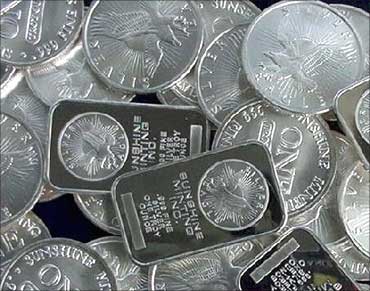
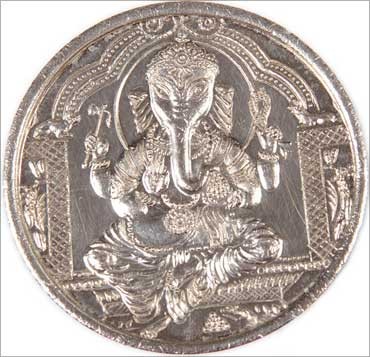
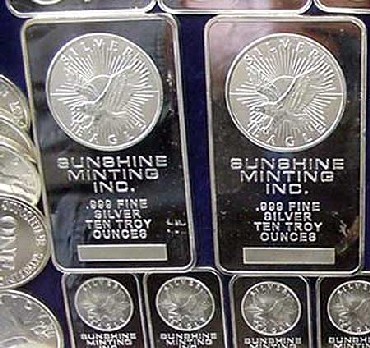
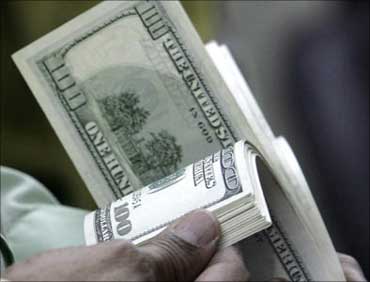
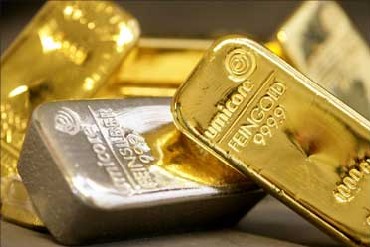
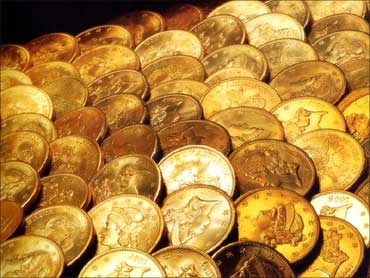
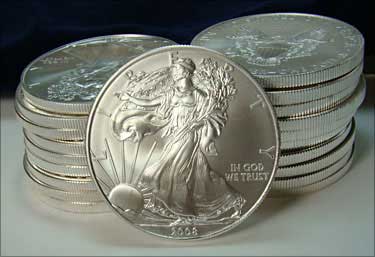
article